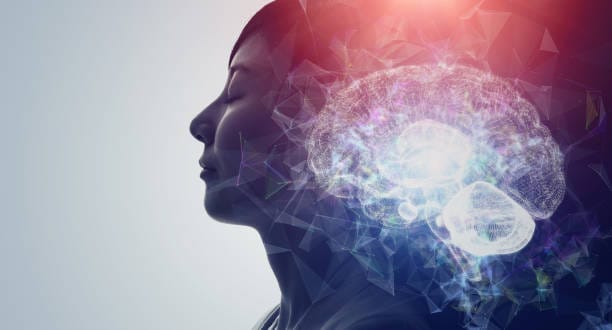The extensively talked about and much appreciated eye-catching arrival of AI has been a global affair. Artificial intelligence has received almost everyone’s attention, from Gen Z and millennials to the older generation.
Large businesses and industries wish to utilize AI in its full capacity to make huge profits and dwell into the next level of innovation. While AI is being merged with a variety of industries, its application in health has also gone really far; for example, AI is revolutionizing robotic surgeries and early disease detection. There’s a loud call for mass-scale revolution in mental health, as with continued modernization, people are having more psychological issues in every stratum of society.
AI is already leaving footprints in mental health, as many AI experts in the field of psychiatry and psychology are developing software to enhance their reach to the public. AI in mental health right now is a double-edged sword causing a sense of comforting wonder and an ache of blunder.
When my fiery hopes hit an end,
An AI bot became my worthy friend.
Joyous, We both mixed and blend
But my private life slammed to an end.
The Wonders
People have become so friendly with the idea of downloading apps on their phones, and AI has not stayed behind in this. So many apps have arrived with features integrated with AI that can help out a person with their mental health needs without any human in the process.
Some of the popular features these apps have are sleep improvement, journaling, mindfulness, and mood diaries.
One of the best advantages AI can give to mental health is the availability of support in rural areas where there are no doctors and therapists for the suffering patient. Someone in a far-off land where there are no facilities to avail help, an app on the phone can be a panacea in such cruel times.
Another good deed by AI is that the data collected by machine learning during the current times can someday lead to the formation of a perfect AI bot that might cater as a full-time therapist to a variety of populations.
The Blunders
A very perturbing issue right now with AI is its lack of human touch and empathy; thus we can’t really see a nearly perfect AI therapist. We do have examples of AI bots that can chat with a help seeker to some extent. This lack of emotional undertone that the AI developers are trying to put into the algorithms doesn’t seem to come to full fruition anytime soon. For now we will have to deal with the “artificiality” of the AI.
The next big blunder is the large amounts of personal data the AI is constantly storing with our usage of it. There have been ethical concerns, and AI developers have voiced accountability, but at the very surface, it feels like our data is out there, freely roaming inside machine learning bots. And it really feels scary to know that if we continuously chat with an AI bot to seek mental health help, in such a case, really enormous amounts of personal information will go into that AI database, and we can’t really confirm that the intentions of the AI developer are not harmful.
The Conclusion
AI has a lot to offer in this really crucial field of mental health for the present and future. With the major promise of accessibility and hope for all, to affordability and personalization. AI is offering many new variables. But right now, AI has the major drawback of potential misuse of personal information and a lack of basic human touch and empathy. But friends, we can’t shun AI and discard it; AI is a tool from the world of innovation, and it should help us like every other new innovation has helped us in the past. Ethical concerns and accountability issues will be systematically dealt with, and AI will emerge as a helping hand of humanity and not a mysterious liability.
